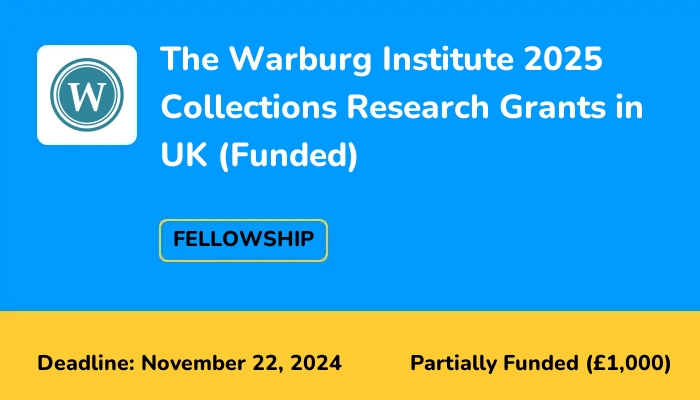 Menu
Menu
Published: 29 Oct 2024 429 views

The Warburg Library, Photographic Collection and Archive comprise significant research collections for students, academics and a national and international scholarly community.
The Warburg Library is open-access (supplemented by a rare book collection) and consists of around 370,000 volumes. The library collection is arranged thematically in a unique classification by subject, designed to facilitate interdisciplinary research. It is an essential resource for Renaissance studies and the history of the classical tradition, particularly in the Middle Ages, Renaissance and Early Modern periods.
There are four main divisions:
Sub-divisions include, for example: the history of festivals and pageantry; the idea of Empire; historiography; the history of cosmology and astrology and their pictorial expression; ritual and myth, papacy, liturgy and religious orders; Platonic and Aristotelian traditions and Islamic and Judaic philosophy; theory of language and literature; emblematics; medieval Greek and Latin and neo-Latin literature; the reception of classical literature; classical and medieval themes in literature; Greek and Roman art and post-classical art to c. 1800, with special emphasis on iconography and the survival of ancient art; early Christian and Byzantine art. There are c. 2,500 runs of periodicals, about half of them current.
The Warburg Institute Archive holds the working papers and correspondence of Aby Warburg (1866-1929), as well as extensive resources on the history and intellectual networks of the Institute, including its beginnings as a private library, the establishment of the Kulturwissenschaftliche Bibliothek Warburg (K.B.W.) in Hamburg in the 1920s, and the move to London in 1933/34. There are also substantial collections of papers of scholars associated with the Institute, including the former Directors Fritz Saxl (1890-1948), Gertrud Bing (1892–1964) and Sir Ernst H. Gombrich (1909-2001), as well as the literary estate of the cultural historian Dame Frances A. Yates (1899–1981).
The Photographic Collection contains around 400,000 analogue photographs of sculptures, paintings, drawings, prints, tapestries, and other forms of imagery. Begun by Aby Warburg in the late 1880s, the collection is ordered by subject according to a unique iconographic classification system first designed by Rudolf Wittkower, Fritz Saxl and Edgar Wind during the 1930s. Among its special collections are the Eranos Collection relating to Jungian archetypes and the Menil Collection for the Image of the Black in Western Art.
The Warburg Institute is one of the world’s leading centres for studying the interaction of ideas, images and society. It is dedicated to the survival and transmission of culture across time and space, with special emphasis on the afterlife of antiquity. Its open-stack Library, Photographic Collection and Archive serve as an engine for interdisciplinary research, postgraduate teaching and a prestigious events and publication programme. Situated in the heart of the Bloomsbury Knowledge Quarter, the Warburg offers scholars the opportunity to engage with academics not only within the instit... continue reading

| Application Deadline | 22 Nov 2024 |
| Value | £1,000 |
| Country to study | United Kingdom |
| School to study | University of London |
| Type | Fellowship |
| Course to study | View courses |
| Sponsor | Warburg Institute |
| Gender | Men and Women |
The grants are intended to pay travel and research expenses against an agreed budget. The maximum sum which can be applied for is £1,000.
This Grants are available to scholars at all levels and all nationalities, including PhD candidates, who wish to undertake some research focused on any one of these collections.
Proposals that explore the potential of all three of the Warburg’s Collections are positively encouraged.
Recipients will be required to attend the Institute daily (Monday to Friday) for the duration of their award; to be free of other significant professional obligations during their stay; and to focus sustained research on the Institute’s collections. Fellows will also have access to resources available in the University of London, including the Senate House Library, the Institute of Historical Research and Institute of Classical Studies libraries.
Please note that persons living in London or nearby (less than 70 miles) will not be considered for a grant.
Applications will be reviewed by the Warburg Librarian and Director of Collections and other members of the Warburg Collections staff. Successful applicants will be notified by the end of February 2025 and will have up to one year to use their award, between 1 June 2025 and 1 June 2026. They must submit a brief report within two months of the completion of their visit.
To apply, please go onto the Fellowships Portal. You will need to register for an account before applying.
The closing date is midnight on Friday 22 November 2024.
For more details visit: Warburg Institute website.